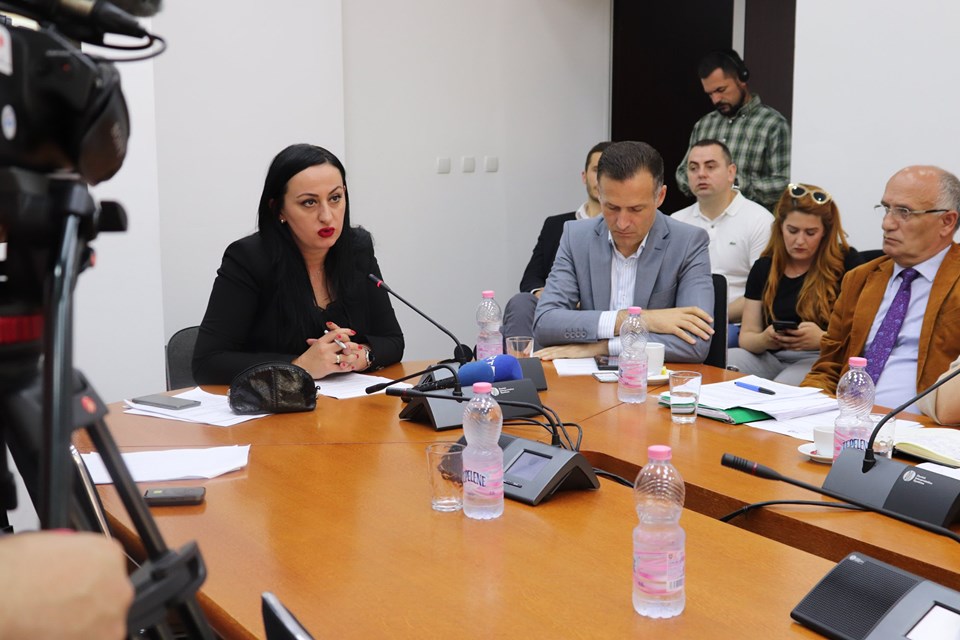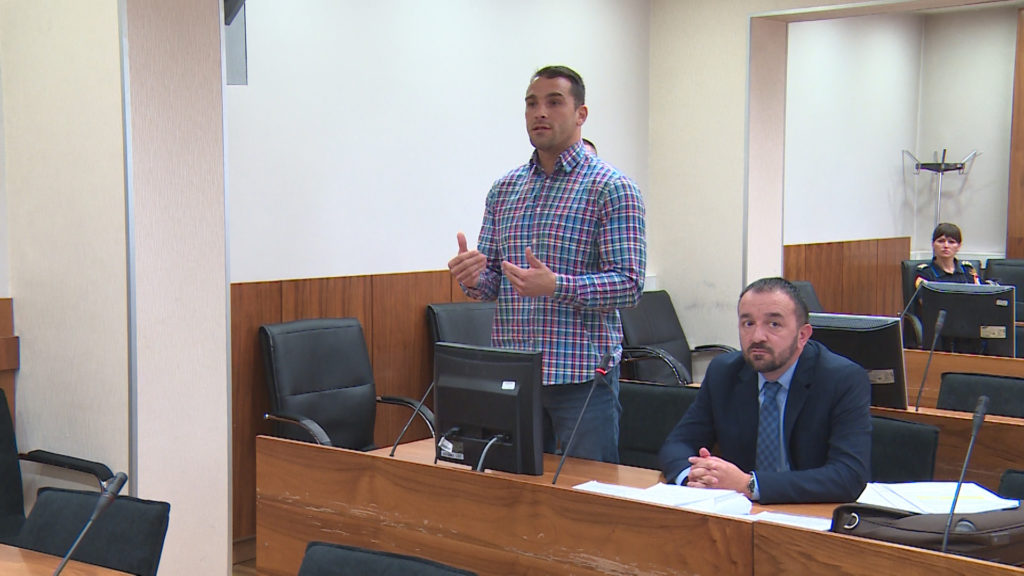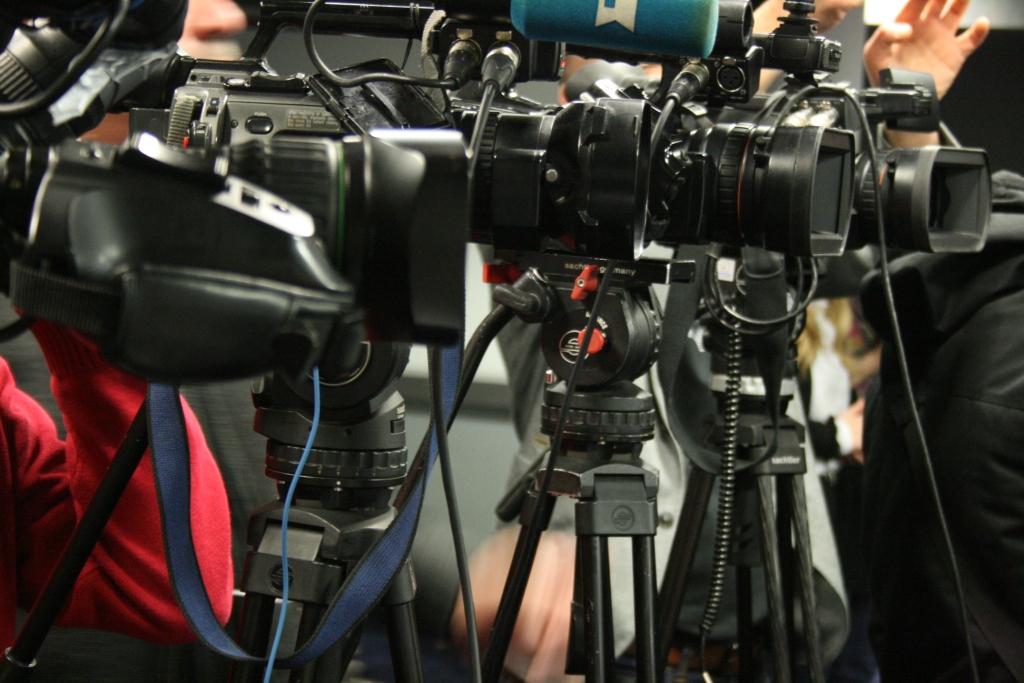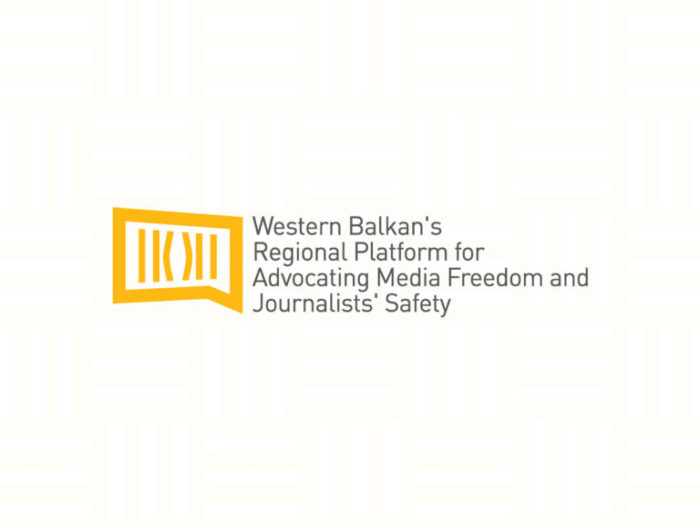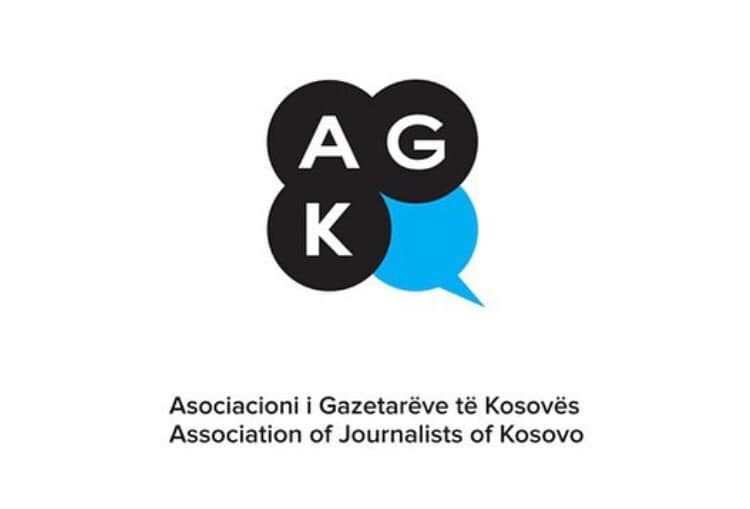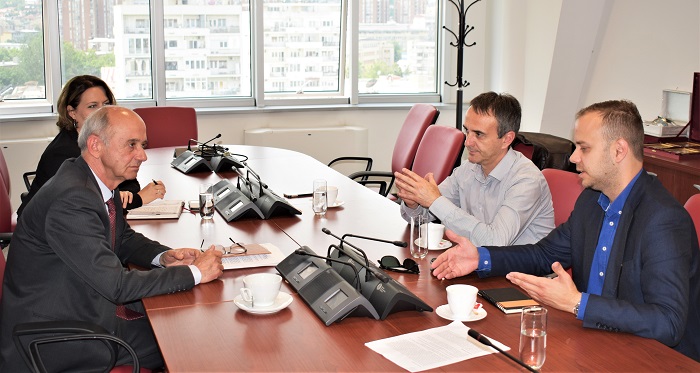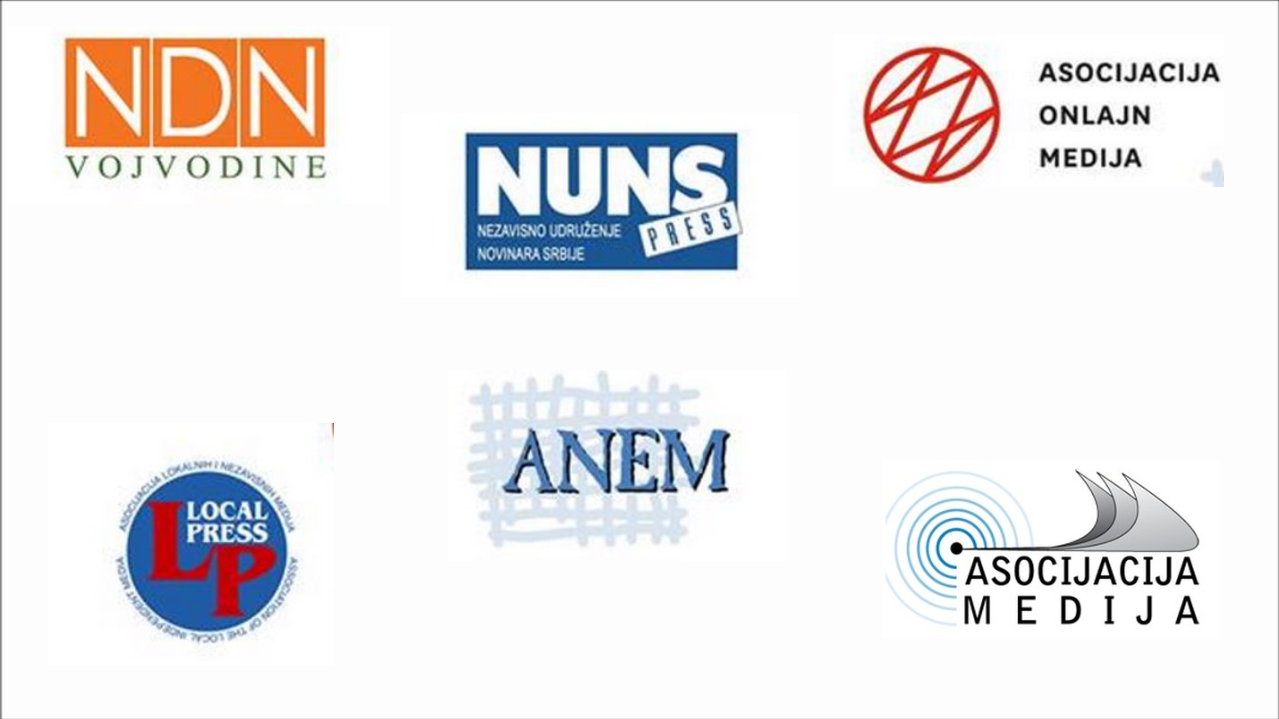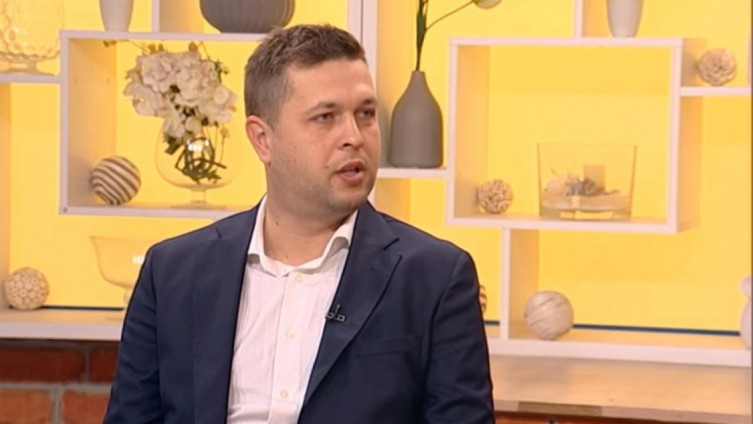SARAJEVO, 03.06.2019.-For the period of the last twenty years, advertising in BiH has had its ups and downs. During the last decade, the advertising industry has recorded significant economic progress. Investment growth in the advertising field has influenced the growth and development of other industries associated with the marketing sector. This mainly concerned the production of TV sitcoms (origin. Viza za budućnost, Crna hronika, Lud zbunjen normalan, etc). Considerable share in production costs has been covered by incomes deriving from the marketing industry.
What caused the investment growth in the advertising field during 2000? Postwar economy indicated certain growth and accordingly, it resulted in an increase of business optimism related to investments in the advertising field. We should not neglect special nor financial help provided by the international community, mostly by USAID subcontracting agencies including Internews and Irex Pro Media. This help was implemented through a vast number of projects associated with TV production and is comprised of knowledge and skills transfer to marketing agencies (USAID World learning). Advertising agencies representatives were provided with an opportunity to become familiar with actual work and to gain knowledge and skills through visits to various media houses and agencies in Poland and Latvia. TV producers, journalists and media entrepreneurs (owners) were able to visit their pendants in America.
American agencies helped in creating important institutions for BH market with UMI – United Media Industry, as one of the most important institutions in this field. UMI has been in charge of telemetry in BiH. TV stations and agencies had their own representatives – delegates in Managing Boards and UMI Assembly. Managing Board almost always included the members from public TV sector and agencies as well. For the period of the first four years, Adnan Bilal had been the president of this institution, coming from the public sector. Senad Zaimovic from agency sector followed. At present, Elvir Svrakic is the president of UPI and he comes from the commercial TV sector. Apart from UMI, many other associations emerged, including PEN (Private Electronic Media), AEM (Association of Electronic Media). All these institutions emerged with partial or complete help and assistance provided by international agencies.
What seems to be a problem then? Establishing associations – industry – based institutions have not been followed by appropriate activities by market participants. BiH had, before any other regional country, institutions – associations, including JIC (Joint Industry Committee). The institutions are currently ranked very low and can hardly sustain in media branch since they managed to prevail more as a result of individual enthusiasm, rather than general industry interest. The common sense conclusion then follows: Taking into consideration that institutions are considered as “God’s gift” and supported and helped by international organizations, and had not been formed as “sui generis”, that is, formed as part of a network and results deriving from industry interests, so, therefore, they have neither met and fulfilled their primary function, looking from long – term perspective, nor have they operated with the capacity required for their operating upon which they had, in the first place, been formed and established.
Media
The market game between public and private media houses resulted in the devaluation of commercial marketing prices. Market prices have been formed based on public budget allocation amounts. Public service, due to problems with the collection of money for RTV Tax Fees was forced to turn its business operations and activities to commercial program contents. Program scheme contents have constantly contained commercial contents, including telenovelas. Sitcoms have been directed and targeted towards to most powerful common merchandise advertising sector, that is, directed to most demanding target advertising group: female persons aged between 19 and 49 years old. Bearing in mind the RTV Tax Fee incomes, including the absence of prompt reactions to offers towards the market and conditions of requirements necessary for the financing of fundamental expenses and costs, public TV media houses have created lowest possible advertising prices which represented the limiting and bordering point of economic sustainability of commercial media houses. Under such circumstances, commercial media houses have been compelled to follow low advertising prices, which were in contrast with investing in production and quality – based programs.
Additionally, their viewership share has been worsening from year to year. Also, the so-called, media spill over, as specialized and exceptionally well designed and produced global programs coming from neighboring countries and broadcasted through cable TV operators made a significant impact on total advertising potential. The domestic and local audience has been turning their attention vastly towards program contents broadcasted from neighboring countries, mostly including TV sitcoms, and music TV shows. The decline in advertising investments caused selling of certain TV stations, such as ATV Banjaluka and Pink BiH. Advertising has been following these trends and practices, resulting in an increasing number of international advertisers conquering BiH market as available (free of charge) value through arrangements with international advertising branch offices located outside BiH, that is, balk – affordable and cheap buying of commercial time on TV programs provided by TV cable operators (film/movies program, sport venues, music TV shows etc.), which consequently had impact of production industry. Specialized agencies and production houses minimized the production of domestic/local programs; agencies would operate with minimum quantities of quality communications materials (printed materials, audio, and video advertisements).
Considering the deficiency of creative materials (this is particularly the case with radio stations) for the purposes of advertisers, they would make their production aimed for advertising budgets were they in return offer free-of-charge PR or audio and video advertisements. There are no strategically – planned campaigns, based on investigative, survey and other required tools. Consequently, campaigns would as result have no success at all. Advertisers, often being unmotivated to invest in advertising and associated industries suffer as well. Film workers (actors, stenographers, stylists, cameramen, directors of photography, etc.) have insignificant engagements and almost no work at all either.
Public service does not fulfill its legal duty to invest the third of its income into outer production. Simply, the public sector is also experiencing difficult and hard the situation as far as it is market survival is concerned. Taking into account that the best price that can be accomplished in the advertising market is approximately BAM 35.00 for one hour of viewership (CPP) and if we hypothetically say that the viewership of certain program is 10% at the state level (BiH) (which in fact is quite an optimistic estimate), then during the certain contract (for instance domestic /local TV sitcom), we could ensure and acquire maximum income amounting around BAM 8.400.00 which is certainly in an insufficient amount of money to cover expenses and costs of relatively solid and quality – based program. Each episode should require double the amount of BAM 8.400.00 if we take into account fixed and variable – fixed expenses that every TV station has, then investing into domestic/local production actually seems like mission impossible. TV stations instead, decide to purchase low – cost, mostly Turkish sitcoms with the reasonable price of EUR 1.500.00 to 2.000, 00 per episode.
Telemetry
For the period of the last four or five years, the TV industry has been facing a high degree of public mistrust and nonconfidence as far as the information regarding telemetry is concerned. After eight years, Mareco Index Bosnia – MiB (a subcontractor of global investigating and market survey company – TNS) has been replaced with Audience Measurement – AM (also a subcontractor of equally global investigating and survey company; namely, Nielsen).
Many controversies followed the introduction of the new provider in BiH.
Namely, the state Institute for Measurement of BiH has passed the legal act that all people – meters must be checked, tested and go through detailed analyses in laboratories, (and they must undergo checking and appropriate calibration process) as if they had been referring to electricity or water consumption meter, instead of referring to an instrument based on relevant domestic house panels. AM established a laboratory, registered and declared their own people – meters as legally valid and useful. MIB was neither capable nor they wanted to hand their own meters to competitor’s laboratory, taking into consideration that the issue was strictly related to the protection of their own software and industrial know-how principles. The Institute for Measuring had at the same time, ordered all media houses and agencies that using the MIB services was illegal. Besides, the MIB was under the UMI competence and was obliged to fulfill the sharing of costs and expenses amongst the members; allow temporarily the audit that would be launched by the commissions appointed by the UMI official authorities (there had been several cases where media houses had been complaining about the quality of provided information).
AM refused to formalize the cooperation with the UMI and AM defined the prices according to their own plans. Few agencies and media houses officially complained to the Competition Council of Bosnia and Herzegovina, which previously issued the permit and finds the AM, because they had been charging different rates for identical provided services, as the dominant organization in the market – in this case, the only organization. Mistrust and disbelief in the quality of provided information (and this is what media planers and media staff are very familiar with): loyal programs, including TV sitcoms or daily or night central news cannot have obvious discrepancies on daily basis.
This resulted in a decrease in advertising investments. The traditional advertising industry has been struck financially and digital media. More and more investments decide to direct their businesses to this particular advertising sector. On one hand, advertising price is significantly lower and targeting accuracy according to demographic and other associated segments are on the other hand higher. We have witnessed great problems with printed media houses being forced to shut down. Unfortunately, this trend shall continue in the future. Competition houses will be even more sharpened with the introduction of IPTV (Netflix) outlined by the vast choice of selection of on-demand movies, including sitcoms and similar programs produce with high quality.
Public Broadcasters
The following special question is what will happen to public services and what will their role be in the near future?
What can be done?
It would be required to strengthen the institutions as self – regulatory industrial factor. Authorized state agency (RAK), along with tax institutions, should provide monitoring of commercial advertisements in order to determine tax duties for the launching of commercial advertisements posted through various regional or global media contents. The resulting incomes could be incorporated with budget means; including special funds and they could ensure incentives and encourage of the production of various program contents. This way could ensure local/domestic advertising sector equal conditions in the market and television production (including producers, actors, directors, and cameramen, directors of photography, stenographers, and stylists) should have continuous artistic engagement and employment.
This text is a part of E-Bulletin– tenth edition of special serial of BHN online bulletin implemented through the “Media and Public Reputation” (origin. “Mediji i javni ugled”) project, also representing a contribution to public debate regarding the transparency of media ownership and upholding and encouraging the passing of set of laws aimed to advance media field and information market in BiH.



